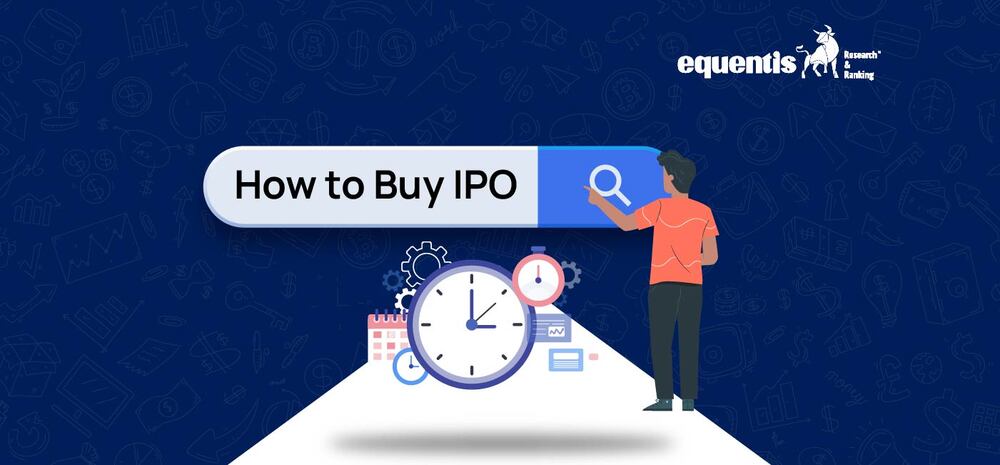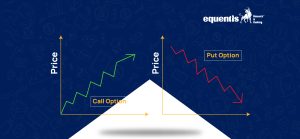Introduction
Initial Public Offerings (IPOs) offer an exciting opportunity for investors to get in early on a company’s growth journey. Many investors wonder how to buy IPO shares effectively and maximize their investment potential. This guide will walk you through the entire process, ensuring you understand every step, from preparation to successful participation in an IPO.
Why IPOs Are a Popular Investment Choice
IPOs allow investors to acquire company shares before they begin public trading. Knowing how to buy IPO shares can be a game-changer, giving you access to high-growth opportunities and potential listing day gains.
How Buying an IPO Can Help You Grow Your Wealth
Learning how to invest in IPO is an essential skill for wealth creation. By participating early, you gain exposure to companies with strong growth potential. However, understanding the process and making informed decisions are key to successful IPO investments.
What is an IPO, and Why Should You Invest?
IPO Basics: Understanding Initial Public Offerings
An IPO is when a privately held company offers shares to the public for the first time. This enables the company to raise capital for expansion while allowing investors to own equity in the business.
Benefits of Investing in an IPO for New and Experienced Investors
Early Access: Knowing how to buy IPO shares lets you invest before the company is listed on public exchanges.
Potential Listing Gains: Due to high demand, many IPOs deliver strong listing day returns.
Portfolio Diversification: Adding IPO shares can bring new industries and innovative businesses into your portfolio.
Also Read: What is IPO? A Complete Guide to Understand IPOs
How to Buy IPO: Step-by-Step Guide
1. Open a Demat and Trading Account
Before investing in an IPO, you need a Demat account to hold shares and a trading account to apply for them. These accounts can be opened with SEBI-registered brokers or banks.
- Importance of a Demat Account for IPO Investments
A Demat account ensures safe and secure storage of your shares in electronic form, eliminating the risks of physical share certificates.
2. Choose the IPO You Want to Invest In
The first step in how to buy IPO shares is to research upcoming IPOs. Look for companies with strong fundamentals, growth potential, and a competitive position in the market.
How to Evaluate Upcoming IPOs Using Fundamental Research
- Review the RHP (Red Herring Prospectus): Understand the company’s business objectives, risks, and financials.
- Analyze the Industry Trends: Look at the company’s sector and growth opportunities.
- Track Subscription Data: Higher subscription rates often indicate strong investor interest.
3. Apply for the IPO Using ASBA or UPI
When you’ve decided on an IPO, the next step in how to purchase IPO shares is submitting your application using either ASBA (Application Supported by Blocked Amount) or UPI.
Understanding Application Supported by Blocked Amount (ASBA)
ASBA ensures that your application funds remain in your account until the IPO allotment process is complete. The amount is debited only if shares are allotted to you.
Steps to Apply for IPO Shares Through UPI
- Link your UPI ID to your bank account.
- Log in to your broker’s platform and select the IPO.
- Enter your UPI ID and approve the fund block mandate.
4. Submit Your IPO Application
Submit your application after double-checking all details, including your PAN, Demat account number, and bid amount. This step is critical in ensuring the application’s validity.
5. Track IPO Allotment Status and Share Credit
Once you’ve applied, the next step in how to buy IPO shares is to monitor your allotment status. You can check this through registrar websites, stock exchanges, or your broker’s platform.
How to Purchase Pre-IPO Shares
What Are Pre-IPO Shares?
Pre-IPO shares are grey market shares that investors can buy via brokers or private platforms before the companies go public. Knowing how to buy pre IPO shares can provide early access to high-growth opportunities.
How to Buy Pre-IPO Shares Through Private Deals and Platforms
- Research companies offering pre-IPO shares on private platforms or through brokers.
- Conduct due diligence to assess the company’s financials, growth potential, and risks.
- Negotiate the purchase terms and complete the transaction securely.
Benefits and Risks of Pre-IPO Investments
- Benefits: Potential for higher returns if the IPO performs well.
- Risks: Limited liquidity and less transparency compared to public companies.
Key Factors to Consider Before Buying IPO Shares
1. Company Financials and Growth Potential
Understanding how to invest in pre IPO or IPO shares involves analyzing the company’s revenue growth, profitability, and future plans.
2. Price Band and IPO Subscription Status
Evaluate whether the price band is reasonable and track subscription data to gauge investor interest.
3. Market Conditions and Investor Sentiment
Market trends and investor sentiment can heavily influence the listing day performance of IPO shares.
Risks of Buying IPO and Pre-IPO Shares
1. Uncertain Listing Gains Due to Market Volatility
Even if you understand how to buy IPO shares, market volatility can impact listing day gains.
2. Overvaluation During High Demand
High demand can lead to overpricing, leaving little room for post-listing growth.
3. Limited Information on Pre-IPO Companies
Pre-IPO investments often lack the transparency available in publicly traded companies.
Conclusion
Summary: Mastering How to Buy IPOs and Pre-IPOs
Understanding how to buy IPO or pre-IPO shares is key to leveraging these opportunities. By following the steps outlined in this guide, you can make informed investment decisions and maximize your returns.
Know more about:
IPOs | Current IPOs | Upcoming IPOs | Listed IPOs | Closed IPOs | IPO Performers
FAQs
Is a Demat account required to apply for an IPO?
Yes, you must have a Demat account to apply for an IPO, as the shares are credited to your Demat account after allotment.
Why do companies go for IPOs?
Companies use IPOs to raise capital for their growth and expansion plans. IPOs also allow early investors and founders to liquidate their holdings.
Can I sell my IPO shares immediately after listing?
Yes, you can sell your IPO shares as soon as they are listed. However, the share price may fluctuate significantly in the initial days after listing.
How useful was this post?
Click on a star to rate it!
Average rating 1.2 / 5. Vote count: 287
No votes so far! Be the first to rate this post.
I’m Archana R. Chettiar, an experienced content creator with
an affinity for writing on personal finance and other financial content. I
love to write on equity investing, retirement, managing money, and more.
- Archana Chettiar













